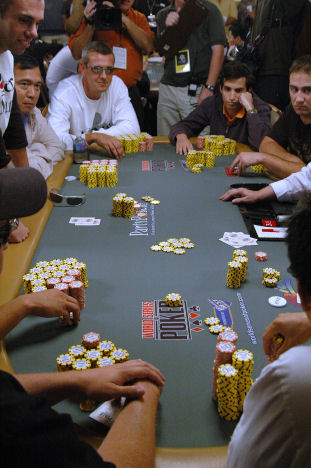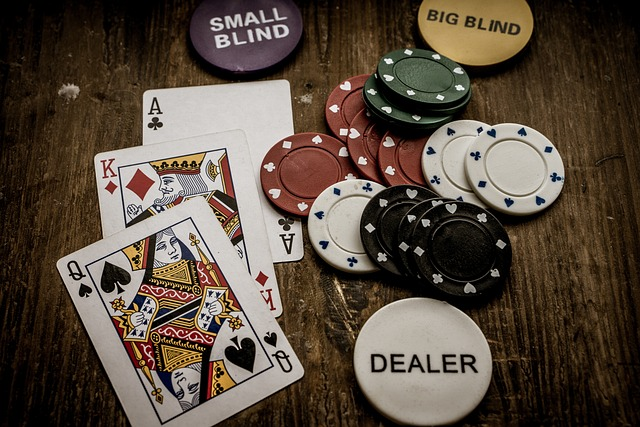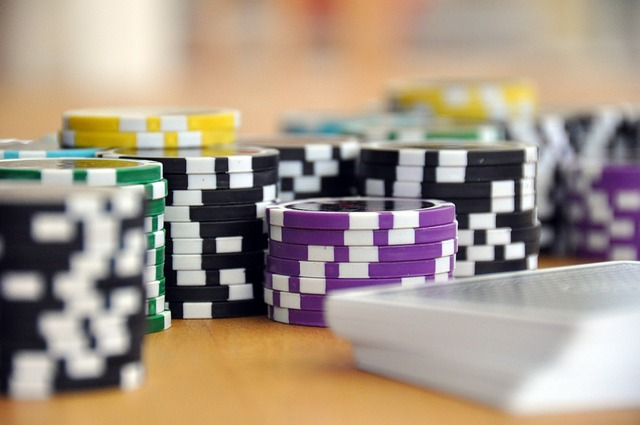
If you have mastered the art of poker, you can dip your toes in poker tournaments. These tournaments test your skills, nerves, and strategy for the game. And the ultimate glory is winning the title and an enticing reward.
Thanks to the game's popularity and budding technology, you can easily find a match near you. The options are plenty, from participating in live games to online tournaments. The best part is that several safe platforms offer online poker tournaments for real money.
If you're ready to try your hands at poker tournaments, here's everything you need to know.
What is a Poker Tournament?

A poker game in which several players compete against each other is known as a poker tournament. However, poker tournaments are not new. The concept of tournament poker gained popularity in the 1970s with the rise of the World Series of Poker (WSOP), established in 1970. The WSOP is widely regarded as the most prestigious poker tournament series globally.
Tens of thousands of players participate during the tournament, which is multi-table. Unlike regular cash games, where players can cash out their chips for money at any time, in a tournament, the chips only represent a player's position in the poker tournament.
As the tournament progresses, the blinds, mandatory bets that rotate around the table, increase regularly. This means that the cost to stay in the game gradually rises, putting pressure on players to make moves and accumulate chips to stay competitive.
Finally, the tournament winner is the player who ends up with all the chips, having outsmarted their opponents. The other players are ranked based on the order in which they were eliminated.
Today, poker tournaments are held on online poker sites, in casinos, or in other offline poker rooms, and they cater to players of all skill levels. However, major events like the WSOP still take place.
Different Types of Poker Tournaments

Now, let's look at the different types of poker tournaments.
Sit and Go Poker Tournaments
Sit-and-go or SNG poker tournaments are a popular format in which the game starts as soon as a certain number of players register. This can range from just two players to as many as 360, But usually, there are 6 or 9 players at each table.
In single-table SNGs, which are the most common type, the top 3 players receive a cash prize. The player who finishes in first place gets the largest share of the prize pool, often referred to as the lion's share. The exact prize distribution can vary depending on the specific poker tournament rules, but generally, the winner takes home the biggest portion of the winnings.
SNGs are known for their fast-paced nature and are popular among players looking for a quick poker fix without the long-time commitment of larger multi-table tournaments. They offer a condensed version of tournament poker where players can experience the thrill of competition and the chance to win money almost quickly.
Heads-Up Poker Tournaments
Heads-up poker tournaments are intense showdowns where each match pits one player against another in a one-on-one match.
Unlike traditional tournaments, where you compete against multiple opponents simultaneously, in heads-up tournaments, it's just you versus one other player. While it can be fun, you must be on top of your tournament poker strategy. One slip, and you can lose the game.
These tournaments can accommodate even more players, with each match pairing up two players until only one champion remains. The format creates a high-stakes, nail-bitting experience, as every hand carries immense weight, and your decisions have a major impact on your tournament fate. Therefore, your poker skills must be top-notch here.
Multi-Table Poker Tournaments
Multi-table tournaments, or MTTs, are the standards of big-money poker competitions. They allow players to turn a small investment into a substantial payday. The tournament tickets aren't very expensive here, but the prize pool is big. To participate, you buy in for a fixed price, which grants you a starting stack of chips to play with.
As the tournament progresses, poker players are gradually eliminated, and the remaining players are redistributed among the remaining tables to balance the number of players at each table. This way, the tournament continues smoothly even as players are knocked out.
One of the attractive features of MTT poker games is that they offer prize payouts to a significant portion of the field, usually ranging from the top 10% to 15% of tournament players. This means that even if you don't finish in the first place, you still have a chance to cash in and make a profit.
Poker Satellite Tournament Poker
Poker Satellite tournaments offer players a chance to win tournament tickets to higher buy-in events by participating in low buy-in tournaments. They are like the lottery of poker tournaments but with the added advantage of smaller player fields. This offers participants a better chance of securing a win.
In these satellites, players compete for prizes that include tickets to prestigious poker events, both online and live, such as the World Series of Poker (WSOP). By winning a satellite tournament, players earn entry into a more expensive tournament that they might not have been able to afford otherwise.
Satellite tournaments are popular among players who aspire to play in high-profile events but may have budget constraints.
Tips for Poker Online Tournaments

Now, let's take a look at the best poker tournament tips. These poker tournament strategy are crucial and can help you curate the best strategy to ace the game. Don't worry; these tips are ideal for all standard poker variants.
Play As Per The Poker Tournament Stage
So, you searched for 'poker tournaments near me' and are all set to play the match. However, whether you are playing in live tournaments or online tournaments for real money, it is crucial to play according to the stage of the game— beginning, middle, and late.
In the early stages, play tighter and focus on survival. In the middle stage, become more aggressive and try to build a chip stack. By the late stage, increase your aggression to make a spot at the final table or the prize pool. Always use and tweak this poker tournament strategy at your convenience.
Push Or Fold
When your stack falls below ten big blinds, it's critical to understand when to push all in or fold to maximize your chances of survival and potentially increase your chip stack.
Now, if you have a strong hand or a short stack that folding isn't a viable option, pushing it all in can be the right move. This usually works when you have premium hands like big pocket pairs or strong-suited connectors like Ace and King.
However, if your hand isn't strong enough to justify going all-in or facing significant resistance from opponents, folding can be good and prevent unnecessary risks.
Make Sure You Bet Right
Whether in an online poker tournament or offline, betting right is essential. Understand stack sizes and position to see best bet sizes. Adjust betting aggression as blind levels rise, using larger bets to apply pressure and smaller ones to conserve chips.
In the early stages of a tournament, it's okay to raise before seeing the flop by betting around 2.5 times the big blind. After the flop, if you decide to bet again, betting about half to two-thirds of the pot is a good idea. This keeps pressure on your opponents while not risking too much of your chips. Adjust your bets based on the game and your opponent's actions.
Understand The Online or Offline Structure
One of the easiest poker tournament tips is to know the structure of the live poker tournaments in and out. This includes blind levels, payout scheme, and format. Adjust your tournament poker strategy based on the big blind, and maintain timely aggression to collect chips. Understand the payout structure to make clear decisions.
Don't Lose Focus
If you are planning to participate in upcoming poker tournaments, make sure you strengthen your focus. During live tournaments, it is important to stay alert. Curb distractions and focus on reading opponents, assessing hand strengths, and calculating odds accurately.
Make robust concentration a part of your poker tournament strategy. By doing this, you can avoid costly mistakes and capitalize on opportunities to advance in the poker tournament. Keep your attention sharp throughout the event to increase your chances of success.
Stages of Poker Tournament

Poker tournaments are divided into three stages. Let's unpack them.
Stage One
The first stage of the poker tournament is the early stage. In this stage, you must adopt a cautious and conservative approach. With deep stacks and small blinds, the priority is building a solid basis for later stages.
You must play tighter and select only premium hands to enter pots and avoid marginal situations. The goal is to preserve chips and avoid unnecessary risks while gathering information about opponents' tendencies and playing styles. This stage sets the tone for the rest of the game and is also known as the opening or initial stage.
Stage Two
As the game progresses, you progress into the second stage, the middle portion. Here, you must get bolder. You must take more chances and try to win more chips. You can try to steal the small and big blind from others or win pots with weaker hands by making big bets. This pressure can force weaker opposition to fold and gain an advantage.
Stage Three
Stage three is the final leg of a tournament or cash game. Only a few players are left here, and the blinds are at their biggest. So, the game gets intense. Players get super aggressive and make smart moves to make it to the final table or win the pot.
It combines skill, waiting for the right moments, and taking calculated risks. Every decision counts, and you must balance being bold with being careful to stay in the game, have a shot at reaching the showdown, and win the top prize.
Mistakes to Avoid While Playing Online Poker Tournaments

Now, you are all set for the upcoming online poker tournaments. However, one last thing you must be mindful of is not making the mistakes mentioned below, as they can cost you big. Take a look!
Playing Too Many Hands
It's definitely tempting to join in on every hand. The price looks lucrative, and the game's spirit feels too much to resist. But it's a mistake. Wait for strong starting hands like high pairs or suited connectors. These hands have better chances of winning. Be patient and selective about the hands you play. It will help you avoid unnecessary risks and improve your chances of success in the long run.
Being Too Passive
Being passive can mean that you are not taking control of the game. Don't just call or check. Sometimes, you need to bet or raise to show strength. Passive players let opponents decide what happens and give them an advantage. By being more assertive with your bets and raises, you can dictate the action and keep your opponents on their toes.
Poor Bankroll Management
Your bankroll is your poker budget. It's as simple as that. Therefore, managing it well is utterly important. Avoid risking too much of it in any single game. By only putting a small portion of your bankroll at stake in each game, you protect yourself from going broke if things don't go your way. This conservative approach ensures minimal risk.
Moving Too Fast
Rushing decisions can be a big no-no. Take your time to think before acting. Scrutinize the situation carefully. Also, consider your hand, the board, and your opponent's actions. Rushed moves often lead to costly mistakes, like betting too much on weak hands or folding strong ones. By slowing down and thinking things through, you will get the maximum value of the hand.
Trying To Win Too Much Too Fast
One of the reasons poker tournaments are famous is the pool prize. And yes, it's tempting to chase big wins, but it's risky. Instead, focus on playing smart and patient poker. Making rash decisions in pursuit of quick wins often leads to losses in the long run—and we don't want that!
Not Having Diverse Range
Don't stick to the same types of hands in poker. Mix it up! Include various hand types in your tournament poker strategy, like strong hands, medium hands, and even some weaker ones. Predictability makes it easy for opponents to determine your strategy and counter your moves.
Ignoring the Independent Chip Model
It's important to know the value of your chips compared to the game's setup. This helps you make better decisions. Ignoring the ICM can lead to using your chips poorly. For example, you might risk too many chips when you should play them safe. Understanding the ICM lets you adjust your strategy smartly.
What is a live tournament calendar?
A live poker calendar is an extremely useful poker tool if you are looking for upcoming poker tournaments near you. It offers the schedule of all the live poker tournaments in your region or country. This way, you can choose which one to participate in.
How do you play in a poker tournament?
To enter the tournament and start playing, you must first sign up for the tournament and pay the buy-in fees. This secures your spot. However, ensure you are well-versed in the game and understand the structure before the event.
Can poker players make money?
Poker players can make money; many professional players even make a living playing poker. However, success in poker requires hard work, like any other endeavor. It needs proper skill, discipline, and a solid understanding of the game. Professional players study strategy, analyze opponents, and hone their skills to stay competitive. Some of the ways they make money are by participating in cash games, tournaments, online poker, and coaching.
How much money do you get from poker tournaments?
It depends on the tournament and the platform you choose. However, the prize pool of the 2023 WSOP main event was $93,399,900, and the first-place winner won $12,100,000.
What is the most popular poker tournament?
The biggest poker event is the World Series of Poker (WSOP) in Las Vegas in May and June. However, several other online poker events and WSOP spinoffs are available yearly.

